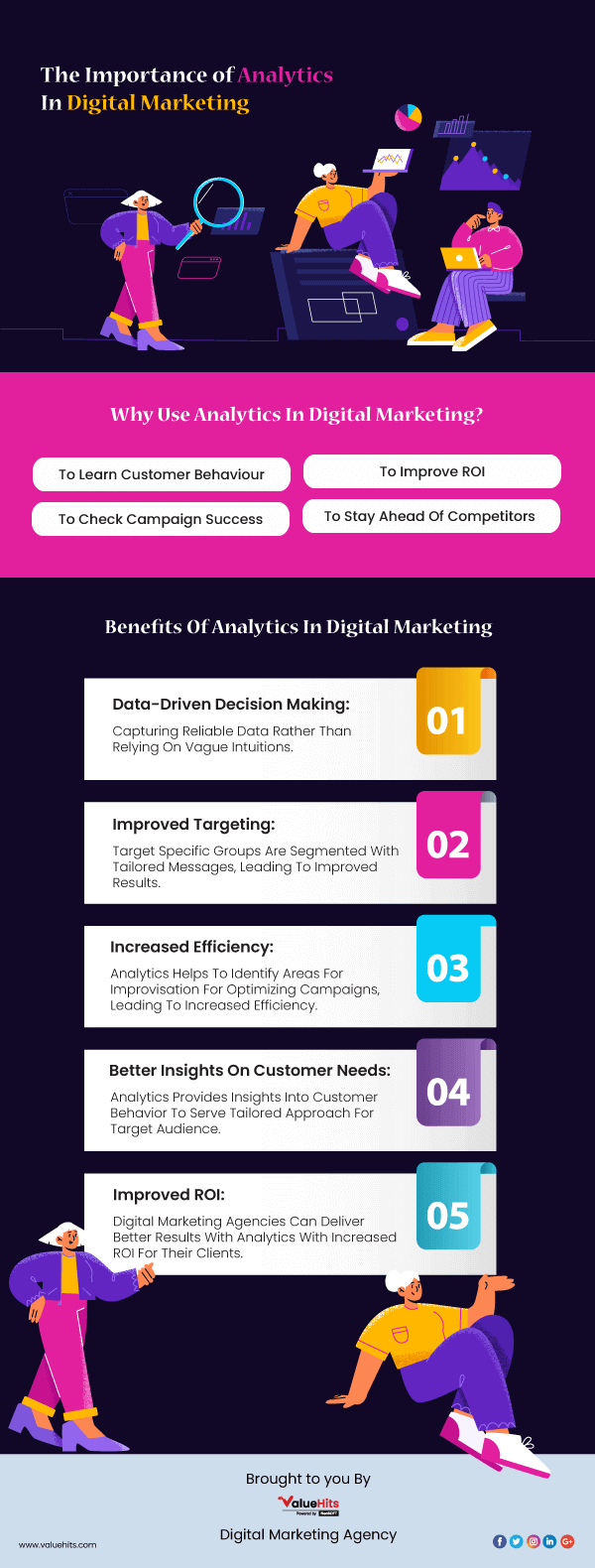Unleash the Power of Data!
In today’s digital age, data is king. With the rise of technology and the internet, businesses have access to an unprecedented amount of information about their customers, their preferences, and their behaviors. This data is a goldmine for marketers, as it allows them to make more informed decisions, target their audience more effectively, and ultimately drive better results.
But simply having access to data is not enough. To truly harness its power, marketers need to use analytics to make sense of all the information at their fingertips. Analytics allow marketers to track and measure the effectiveness of their campaigns, understand their customers’ journey from awareness to conversion, and identify areas for improvement.
One of the key reasons why analytics are essential for marketing decisions is that they provide valuable insights into customer behavior. By analyzing data on things like website traffic, email open rates, and social media engagement, marketers can gain a better understanding of what resonates with their audience and what doesn’t. This allows them to tailor their marketing efforts to be more relevant and effective, ultimately leading to higher conversion rates and ROI.
Analytics also help marketers track the performance of their campaigns in real-time. By monitoring key metrics like click-through rates, conversion rates, and customer lifetime value, marketers can quickly identify what’s working and what’s not, and make adjustments accordingly. This agility is crucial in today’s fast-paced digital landscape, where trends and consumer preferences can change in an instant.

Image Source: valuehits.com
Furthermore, analytics can help marketers optimize their marketing spend. By analyzing data on the performance of different channels and campaigns, marketers can identify which ones are delivering the best results and allocate their budget accordingly. This ensures that every dollar spent is being used effectively to drive the maximum return on investment.
In addition, analytics can also help marketers personalize their messaging and content. By analyzing data on customer demographics, behavior, and preferences, marketers can create targeted campaigns that speak directly to the needs and interests of their audience. This not only improves the effectiveness of their marketing efforts but also builds stronger relationships with customers.
Overall, the power of data and analytics cannot be overstated when it comes to making marketing decisions. By leveraging the insights and information that data provides, marketers can drive better results, improve ROI, and stay ahead of the competition. So, if you want to take your marketing strategy to the next level, make sure to unleash the power of data and incorporate analytics into your decision-making process.
Transform Your Marketing Strategy!
In today’s fast-paced digital world, marketing strategies are constantly evolving. With the advancement of technology and the increasing competition in the market, it is crucial for businesses to stay ahead of the game by continuously adapting and improving their marketing tactics. One way to do this is through the use of analytics.
Analytics play a vital role in helping businesses make informed decisions about their marketing strategies. By analyzing data from various sources such as social media, website traffic, and customer behavior, businesses can gain valuable insights into their target audience and market trends. This information can then be used to create more effective and targeted marketing campaigns.
One of the key benefits of using analytics in marketing decisions is the ability to track and measure the success of your campaigns. By monitoring key performance indicators such as website traffic, conversion rates, and customer engagement, businesses can determine which marketing tactics are working well and which ones need improvement. This data-driven approach allows businesses to make real-time adjustments to their strategies, ensuring that they are always on the right track.
Another advantage of using analytics in marketing decisions is the ability to personalize marketing efforts. By analyzing customer data and behavior, businesses can create personalized marketing campaigns that are tailored to the individual needs and preferences of their target audience. This not only helps businesses attract and retain customers, but also allows them to build stronger relationships with their audience.
Furthermore, analytics can help businesses identify new opportunities for growth and expansion. By analyzing market trends and consumer behavior, businesses can uncover untapped markets and niche audiences that they can target with their marketing efforts. This allows businesses to stay ahead of the competition and capitalize on emerging trends before their competitors do.
In addition to improving marketing strategies, analytics can also help businesses optimize their budget and resources. By identifying which marketing tactics are delivering the best results, businesses can allocate their resources more effectively and eliminate wasteful spending on tactics that are not yielding a positive return on investment. This can help businesses maximize their marketing efforts and achieve better results with less resources.
Overall, analytics are essential for making informed and data-driven marketing decisions. By leveraging data and insights from analytics, businesses can transform their marketing strategies and stay ahead of the competition. Whether it’s tracking the success of marketing campaigns, personalizing marketing efforts, identifying new growth opportunities, or optimizing budget and resources, analytics are a powerful tool that can help businesses achieve their marketing goals and drive success in today’s competitive market.
The Importance of Analytics in Marketing Decision Making